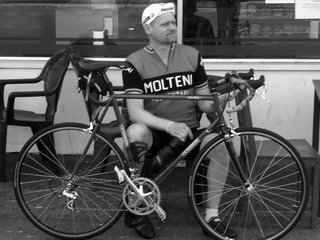So I just got back from the Pacific Northwest Two-Year College English Conference. It’s a pretty small meeting of community college English faculty. The theme this year was “Pedagogy and Politics: Citizenship in the Classroom and the Community College.” I’m paging through ten pages of journal scribblings and consolidating what I learned. There seem to have been two threads for me:
- School is not really structured to support deep learning; that sort of learning happens in communities of engaged people who rely on one another to develop.
- Students and faculty often have quite different perspectives on the ethical and historical issues that define a general education; they need to arrive at a common vocabulary if they are to become a real learning community.
Perhaps the most interesting phrase was “the unstated curriculum.” Paul Bodmer used this phrase to name the social life that most community college students never experience. Faculty and most folk who run colleges spent time “on campus”; that is, they lived with a group of people who were also in the business of learning. The ideas and skills that circulated in class followed us around quite naturally in lunch conversations or arguments at a local tavern. In the best case, “on-campus” learners practiced not for class but in a community. Bodmer observed that the majority of community college students come in for a class and then leave; they don’t really experience the “unstated curriculum.” One result is that they get fewer opportunities to practice and get feedback from other learners. They come to see knowledge as something owned by authorities and not constructed by learners. He wondered about (without in the way of a solution) how to offer the current generation of college students a chance to experience the “unstated curriculum.”
I wonder about this as well. We know (Bodmer pointed to reports issued by the DoE and the AAC&U) that not all (and likely not enough) students are not leaving college with fluency in “critical thinking” or “problem solving.” We know that this is so in part because they have too few opportunities to practice these skills and get feedback on their development. Of course, the current crop of students practice thinking and think quite fluently. But the exemplars are The Daily Show and Fox News (Bodmer’s examples). In these cases, the thinking is produced by someone else and neatly packaged. Humor or ideological correctness displace rigor and argument.
In the final session I attended, we talked about how to imagine a research writing class as a student club that was responsible for publishing work on important local topics. What I still wonder is whether my students would find this a) too boring (it ain’t the Daily Show) or b) the crackpot idea of some social do-gooder (the folk at Fox News might say this).

